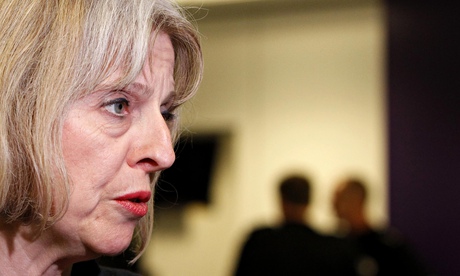
New laws to tackle slavery will not ask companies to reveal forced labour in their supply chains because it could be too much of a burden, the government has indicated.
On the day the Guardian published evidence that some seafood being sold in the UK is linked to slavery, it emerged the Home Office will not for the moment require companies to report on whether their suppliers are completely free of forced labour.
The Home Office said it takes the issue extremely seriously and has not ruled out legislating to make reporting requirements tougher for companies. Theresa May, the home secretary, will meet businesses on Wednesday to discuss eradicating slavery from supply chains. However, it is understood the voluntary approach is favoured at present.
The government is bringing in new punishments to deter modern slavery through a new bill unveiled in the Queen's speech, but it has been criticised for failing to deal with the problem of foreign suppliers that use forced labour.
The joint committee that scrutinised the draft bill called for quoted companies to disclose any links to forced labour and identify an individual with responsibility at board level. Frank Field, chairman of the committee, said the lack of measures "effectively to counter slavery in companies' supply chains is such a serous omission that parliament must do its best to rectify".
However, the Home Office said the government wants to work "collaboratively" with businesses to support them in eliminating forced labour in supply chains "in a way which does not place additional burdens on them".
It also pointed out that the EU is likely to enact new laws in 2016 forcing companies to report on human rights in their business relationships, which could mean an expectation on firms to audit their supply chains for signs of slavery.
"In taking any further action in this area the government is, therefore, mindful of existing requirements on business and possible future changes to the business reporting regime," the government said.
"We intend to build on the existing legislative framework, and work with business to establish what more can be done to raise awareness among their workforce and their sub-contractors, and develop an evidence base on best practice. The home secretary is meeting with business leaders in June to help assess the most effective way forward.
"In doing so, we recognise the complexity of supply chain issues, particularly where they involve links with business overseas and where the influence of UK-based companies is diminished. Cross-government action is being taken to bring businesses together to discuss the challenges and opportunities in tackling modern slavery in supply chains."

